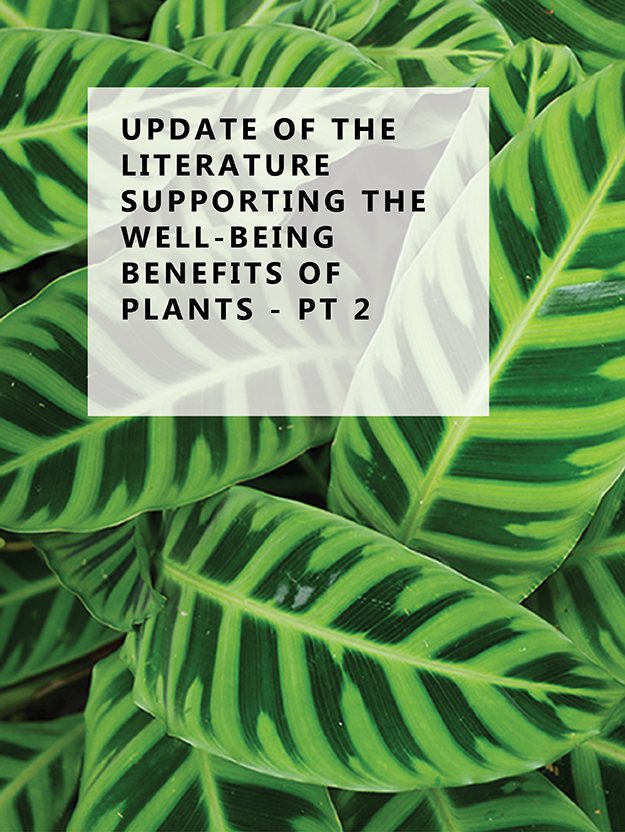Literature Supporting the Well-Being Benefits of Plants Part2

This paper focused on providing evidence from the literature regarding the physiological health benefits associated with plants, thereby influencing the physiological, psychological, and cognitive well-being constructs affecting quality of life. These benefits are segmented and discussed using the following categories: better sleep, increased birthweights, decreased diabetes, decreased ocular discomfort, enhanced immunity, improved circadian functioning, improved rehabilitation, decreased cardiovascular and respiratory disease, decreased mortality, improved digestion, decreased allergies, increased physical activity, and improved cognitive development. This research should be strategically incorporated into both industry-wide and firm-specific marketing messages that highlight the quality of life value proposition in order to maintain the industry’s sense of value and relevance to residential landscape consumers of the future. These findings also present evidence that municipal leaders and policymakers can use in justifying green infrastructure-related funding decisions, as well as grounds for the construction industry using biophilic design principles in ensuring the built environment offers opportunities for green space interactions. The green industry can play a pivotal role not only in providing plants of high quality for these applications but educating stakeholders regarding the benefits discussed herein.





